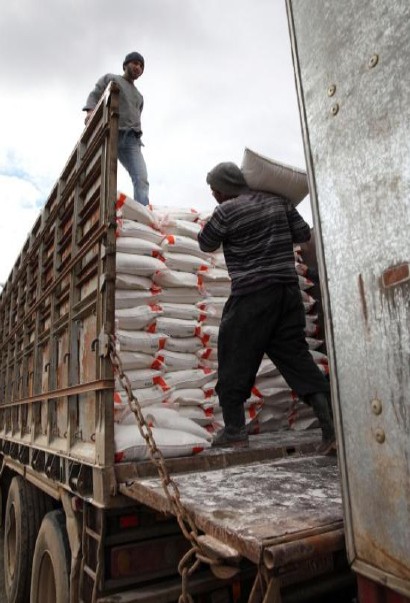
Despite nearly two years of ongoing conflict in Syria, grain is being ground into flour, tested for moisture and protein content, and baked into sample loaves of bread. Flour that meets approval is bagged and loaded onto trucks bound for a distribution warehouse in Aleppo Governorate.
At the warehouse, each bag is accounted for as it is offloaded by workers. A community member, who helps oversee the warehouse, looks on, notepad in hand. He talks about how the flour can help ease the financial burden of the displaced Syrians who crowd almost all available living space in the neighborhood.
He notes that even subsidized flour costs more than most families can afford even in the best of times. The flour being offloaded today is donated by USAID and will allow bakeries— identified in coordination with the Syrian Opposition Coalition's Assistance Coordination Unit—to sell bread at reduced cost, while still making enough profit to pay workers and purchase additional supplies in local markets.
The warehouse manager also speaks of the overall economic benefit of the donated flour to businesses in the area. "It's not our objective to just give relief," he says, "We want to help the people work and make their own money."
The unloading of the flour concludes in the late afternoon. The delivery truck buttons up and heads away, while the workers hurry off to receive their day's wages. The gate to the distribution warehouse closes, but it will open again soon enough.
Another truck filled with USAID-donated flour will arrive tomorrow, and the whole process will be played out again. USAID is providing enough flour to 50 bakeries in Aleppo Governorate to bake daily bread for approximately 210,000 people for the next five months.
The United States is providing nearly $385 million in humanitarian aid to help those affected by the crisis in Syria.







Comment
Make a general inquiry or suggest an improvement.